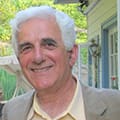Salim Tamari is a senior fellow and director of the Institute of Jerusalem Studies which is affiliated with the Institute for Palestine Studies. He is editor of Jerusalem Quarterly and Hawliyyat al Quds. He is professor of sociology at Birzeit University and has authored several works on urban culture, political sociology, biography and social history, and the social history of the Eastern Mediterranean. He has served as visiting professor at the University of California at Berkeley and Eric Lane Fellow at Cambridge University among other posts.
From this author
Even before the crusades, Jerusalem has had an enchanting hold on people’s imagination. Visitors imposed their aspirations, inner anguish, and dreams on what they saw as an eternal sacred city, whereas the worldly city was at great variance and often in contradiction with these imageries. Indeed, this vision of the city of God has always been in contrast with the living physicality of the city. As revealed in the leaked “Palestine Papers,” this view of the metaphoric Jerusalem has been adopted in the negotiations between Israelis and Palestinians.

Salim Tamari· Jul 11, 2011











